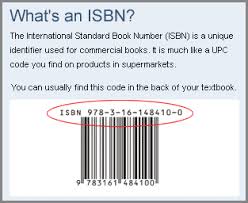Writing Your Book – A Blog at a Time
Two days ago, I was scheduled to meet with a client. She wasn’t able to make the meeting, but someone else – from the next booth over – was interested in what I was doing.

Memo to self: write a book. It’s not easy, but it is doable.
We struck up a conversation. She was interested in writing; potentially in writing her first book.
Here in this blog today, I’ll give you the same advice that I gave her: Blog your way to your (next) book!
There are three good reasons that blogging – careful, intelligent, focused blogging – will help you generate solid raw material for your next book:
- You generate content on a regular basis. Self-evident. Some content is useful. Some is not. Still, you’re generating a writer’s slush-pile from which you can draw when you put together your “collected works” in a compendium.
- You start establishing yourself as an authority – well before you’ve established yourself as an authority. One of the biggest reasons that we’re advised to write a book is that a published book establishes us as an “authority.” However, “authoritiy” is incremental. Writing a credible blog series is a good step in that direction.
- You generate readership. A “loyal following.” A TRIBE. Oh-so-important. Probably the strongest reason for getting your work out there incrementally. Most writers find that the actual tasks of writing, editing, proofing, and getting their book finally published are huge – and still pale into insignificance when faced with the marketing challenge. Writing is the molehill. Marketing is the mountain. You have to have done both to know the difference.
But first:
How NOT to Write Your First (Next) Book
There are some (so-called) “advice experts” who will give you a plan to write a book in 90 days. I’ve even heard of one (go ahead; check out the link in the caption on the first image, in the previous section – above and to the right) who will “teach” you to write a book in ten hours. (This means: You’ll spend ten hours getting other people to write chapters for you, slap a cover on it, and call it a book. Humpf!)
A book in hours? Even a book in 90 days?
Ya-gotta-be-kidding-me!
My advice? Up your bull**** detection factor.
If it seems too easy, it is.
And someone’s trying to pull the wool over your eyes.
A Book Is Not a Term Paper (At Least, It Shouldn’t Be)
Remember when you had to write a college term paper? Suppose that you had to get one done in 90 days. Suppose – even – that you were being diligent, disciplined, and hard-working. (Or better yet, your professor made you do the project in steps, with outlines and drafts to be submitted at intervals.)
Your very best efforts – and we’re assuming that your an A student here, and that you’ve done as much research as you possibly could – would result in a pretty decent term paper.
So here’s the kicker: When – if ever – did a term paper (a 90-day wonder) ever make someone an authority in their field?
Never, right?
Let’s be clear here. A ninety-day wonder will have – at best – the quality of a pretty good term paper. It will not have the same quality and substance as a book on which the author has labored for years.
All the research in the 90-day effort, and even contributed essays, won’t count for the personal experience and depth of knowledge on which you’ll draw and put into your real book.
A quality effort will take time, perseverance, dedication, and an enormous tolerance for both long hours at the computer and social isolation.
So What Really Is a Book, Anyway?
In this day of rapid self-publishing, with absolutely no filters on what is produced, what is our honest-to-God definition of a book?
Let’s make it easy for ourselves:
A book is something with an ISBN number on it. Preferably, it is available through Amazon.
That means, the “barrier for success” in producing a book is pretty damn low. It means that just about anyone can produce a book.
And the scary thing is, just about anyone does.
What that means is: writing and publishing a book no longer carries the cachet that it did, even a few years ago.
What It Really Takes to Get a Book Out
I’ve written two books. The first, written over twenty years ago, was purely technical. At that time, the Handbook of Neural Computer Applications was first comprehensive book on the newly-emerging neural networks computing arena.
The book was about 500 pages long.
Half of that book was original text that I wrote, and half was edited chapters.
The contributed chapters ranged in quality from fantastic to awful. Some I treated as though they issued from the Holy Grail; they really were that good. Some were pretty decent; I gave them a thorough editing pass, but they didn’t really require much work. A few — well, hours and hours of work went into making them semi-acceptable.
Rule #1: Whether the material comes from yourself or from others, it will take time and careful attention to create, edit, and proof.
Corollary to Rule #1: Just because you ask someone else to contribute a chapter, your work is not made that much easier.
Even if you can get others to contribute material for your book – ranging from essays to full-length chapters – You still have to:
- Negotiate the agreement. Be clear about what you want, and your timeframe.
- Lean on your contributor until the work comes in. Most people who are good are also over-committed. They will agree to write for you in good faith. They also have a lot of other stuff on their plates. Guess what comes first? Learn to nag, nicely!
- Edit and proof the work. The quality that comes in can vary. It’s up to you to make it professional and consistent. This takes more diligence and time. It possibly also takes tact, as you present revised versions back to the original author. (Remember, they’re going to have their name attached. They get final right-of-approval.)
The same – the very same – goes for asking “guest bloggers” to write a blog post for your series.
Conclusion: Nothing is as easy as it looks. There are no shortcuts to a quality product.
So, If You’re Still Serious about Writing a Book …
If I’ve managed to scare you off, good!
Producing a quality product takes time.
Every single stage takes absolutely far more time than you could imagine.
And then, comes the marketing.
If you’re still with me, then let’s talk our way through one path that has some likelihood for making your life just a little bit easier.
When I wrote my first book (the Handbook of Neural Computing Applications), I signed up first to write a regular column for a brand-new neural network computing journal. I was thrilled to get the inclusion; they were thrilled to have me.
I used the column to develop and present annotated bibliographies, organized by neural-network-type. (And, in fact, I invented the definitions for the various “types” – which I later used as a guiding structure in my book.)
Being a technical book, having a bibliography for each section was very important.
My annotated bibliography columns became first chapter drafts for the book.
They didn’t make things that much easier. But they made the project doable.
And that’s what you’re after. You’re after anything that will make the book-writing-and-publication-project doable.
Because you want more than something with an ISBN number slapped on it.
You want something that will be positively reviewed. Something that even your strongest competitors will have to admit, Damn, that’s good! Wish I’d written it!
Once your book is out there, it’s out there. It represents you.
Anyone can read. Anyone can comment. Anyone can write a review on Amazon.
If your product (your book) is good, it will still be an enormous effort to get those positive reviews.
But if it’s bad?
Let’s just not go there, shall we?
Instead, start organizing your thoughts and ideas with your blog. You don’t need to publish your blog in a major journal. (Opportunities to share your blog may come later, if you’re good.)
Your strengths will emerge over time.
It will become obvious – to you and to others – which of your blog posts are the best. Which are the most worthy of cultivation and future attention. (If you need to, ask. But you’ll know.)
Then, when you’re finally ready to settle down and make the big push – you’ll have a slush pile on which you can draw.
Which is a whole lot easier than starting from scratch.
To your own success – Alianna



